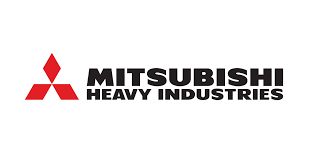
Standard Hybrid Electric Propulsion Vessel for Use in a Biomass Fuel Carrier envisioned in collaboartion
Tokyo-based firm e5 Lab Inc. and Mitsubishi Shipbuilding Co., Ltd., a part of Mitsubishi Heavy Industries (MHI) Group, have agreed to provide the design for “ROBOSHIP,” a standard hybrid electric propulsion vessel the two companies are seeking to promote as a vision for the future of ships, for a 499-tonne biomass fuel carrier being built by Honda Heavy Industries Co., Ltd. The widespread adoption of the futuristic ROBOSHIP has the potential to reduce CO2 emissions in the coastal vessel industry, and lessen the workload for crews.

ROBOSHIP utilizes a standard system package comprising the hardware for electric propulsion, including propellers, motors, switchboards, storage batteries, and generators, together with the software to safely and efficiently control this equipment. The system is able to handle a cargo ship of up to around 749 tonnes. The ship foregoes conventional diesel engines that require fossil fuel in favor of a hybrid system of large-capacity storage batteries and generators to drive the propulsion motors. The adoption of Mitsubishi Shipbuilding’s high-performance twin skeg ship design lowers propulsion horsepower by more than 20%, reducing CO2 emissions during cruising, and allowing the ship to navigate completely CO2-free during port operations such as freight loading and unloading, pier docking and undocking, and entering or leaving port. The generators are capable of switching between eco-friendly fuels including liquefied natural gas (LNG), hydrogen, ammonia, biofuel, and synthetic fuel, allowing all operations, including navigation, to be CO2-free.
The vessel to be equipped with this system is being built by Honda Heavy Industries for Asahi Tanker Co., Ltd. After completion and handover in April 2023, the ship is expected to operate as a biomass carrier for Aioi Bioenergy Corporation. It will also be equipped with the Marindows digital platform developed by Marindows Inc., utilizing communications and digital technologies to support the digital transformation (DX) of the coastal vessel industry.
Information Source: Read the article
Oil and gas, press , | Energy, Climate, Renewable, Wind, Biomass, Sustainability, Oil Price, LPG, Solar,Electric

